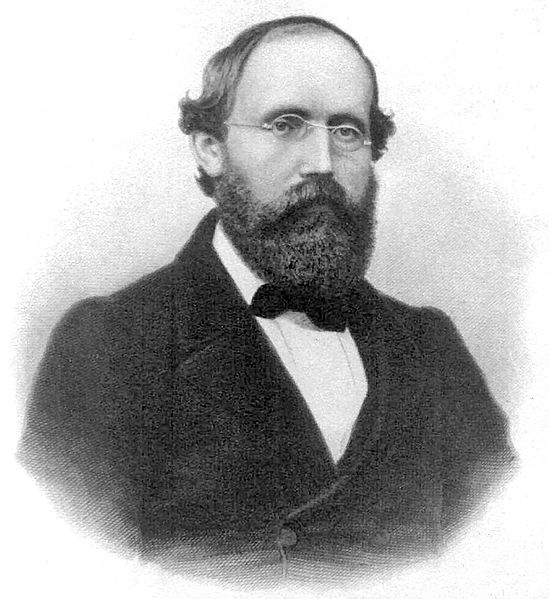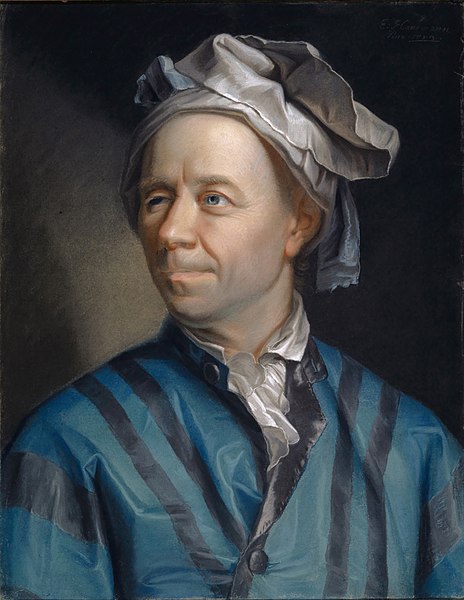Georg Friedrich Bernhard Riemann was a German mathematician who made profound contributions to analysis, number theory, and differential geometry. In the field of real analysis, he is mostly known for the first rigorous formulation of the integral, the Riemann integral, and his work on Fourier series. His contributions to complex analysis include most notably the introduction of Riemann surfaces, breaking new ground in a natural, geometric treatment of complex analysis. His 1859 paper on the prime-counting function, containing the original statement of the Riemann hypothesis, is regarded as a foundational paper of analytic number theory. Through his pioneering contributions to differential geometry, Riemann laid the foundations of the mathematics of general relativity. He is considered by many to be one of the greatest mathematicians of all time.
Riemann c. 1863
Riemann's tombstone in Biganzolo in Piedmont, Italy
Number theory is a branch of pure mathematics devoted primarily to the study of the integers and arithmetic functions. German mathematician Carl Friedrich Gauss (1777–1855) said, "Mathematics is the queen of the sciences—and number theory is the queen of mathematics." Number theorists study prime numbers as well as the properties of mathematical objects constructed from integers, or defined as generalizations of the integers.
The distribution of prime numbers is a central point of study in number theory. This Ulam spiral serves to illustrate it, hinting, in particular, at the conditional independence between being prime and being a value of certain quadratic polynomials.
The Plimpton 322 tablet
Leonhard Euler
"Here was a problem, that I, a ten-year-old, could understand, and I knew from that moment that I would never let it go. I had to solve it." —Sir Andrew Wiles about his proof of Fermat's Last Theorem.






